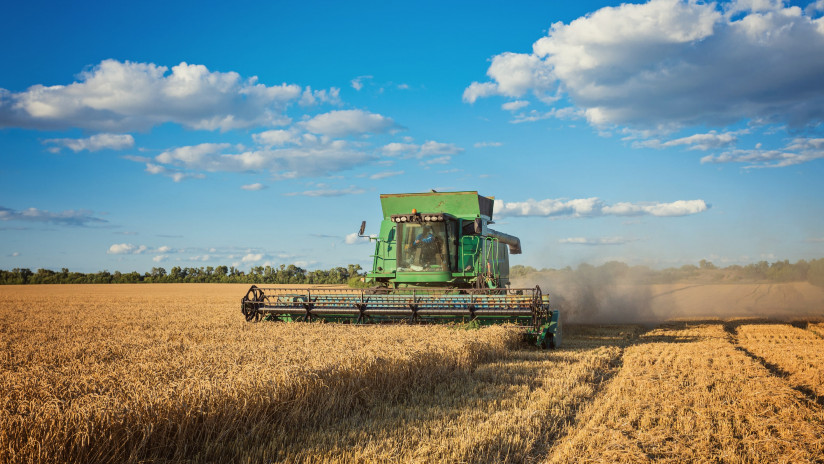The graduates of the "Young Economists" training of the Institute for Democratic Initiatives (IDI) prepared a document on the potential effects of the World Trade Organization (WTO) and Azerbaijan's membership of this organization on the country's agriculture.
The first section of the study reviews the WTO's approach to agriculture. The WTO is the only international body that establishes universal standards for international trade. Its primary duty is to make sure that trade is done in a way that is fair, unrestricted, predictable, and free. Multilateral trade agreements serve as the foundation for the WTO's regulation of international trade relations. The status of nations is determined at WTO entry, and this status has some conditions attached to it. The duration of the transition to tariff concessions (market access), as well as the level of domestic and export subsidies in agriculture, are the primary components of these conditions. Market access involves the reduction of tariff and non-tariff barriers to trade by WTO members. The WTO Agreement on Agriculture requires tariffs to be reduced as follows:
- Average reduction of 36% for developed countries with a minimum reduction of 15% per tariff line over six years
- Average reduction of 24% by developing countries over ten years with a minimum of 10% reduction per tariff line
The second part of the study examined the expectations of WTO membership. WTO accession is a country-specific process that can take anywhere from three to fifteen years. Azerbaijan's membership in the WTO is directly related to the improvement of the legislation, which includes laws that do not meet international standards in the field of regulation, intellectual property, and investments. Admission to the WTO will allow Azerbaijan to predict its trade policy, increase transparency and increase trade with international partners. When making decisions to invest in foreign countries, investors mainly look for countries with a more favorable investment climate and predictable investment policies. WTO membership makes a significant contribution to attracting foreign investments, with a positive impact on investment due to the principle of "transparency" of the WTO. At the same time, foreign entrepreneurs invest more in countries where another principle of the WTO, "national treatment" (non-discrimination between foreign and domestic entrepreneurs) is applied.
In the third section of the study, the current state of agricultural production in Azerbaijan was examined. Although agricultural output has increased over the last few years, the circumstances are not favorable for production to rise further. During the period 2000–2010, when the oil sector had a particularly large effect on overall economic growth, the share of agricultural production in GDP declined from 16.1% to 5.5 percent. The contribution of agricultural production to GDP increased from 5.5 percent to 6.7 percent between 2010 and 2020. (This indication dropped to 5.9 percent during the pandemic.)
During 2021, agricultural products worth 9163.4 million manats were produced. 4,652, 4 million manats of the agricultural products produced in the country belong to animal husbandry, and 4,511 million manats to plant breeding. In exchange for the high rate of growth of animal husbandry compared to the area of crop cultivation, as well as the expansion of grain-growing areas with extensive methods, where relatively low value-added is created, due to the decline in the production of other products with high value-added, the share of crop production in the structure of total agricultural production decreased from 57.5 percent in 1995 to 49 percent in 2021.
At the last part of research, results and recommendations are included. It is noted here that the desired development of the agricultural sector in Azerbaijan is an obstacle to the full realization of the country's potential in this field. In this regard, WTO membership and adaptation of existing standards to international practice can increase productivity in the country's agriculture. This, in turn, can lead to significant changes both in terms of reducing import dependence and increasing employment opportunities. At the same time, the government's arguments and concerns about the negative consequences of WTO membership are not insurmountable. By implementing the appropriate changes, it is possible to minimize the existing risks for WTO membership and benefit from the membership benefits. Another point to be noted about WTO membership is that the government's approach to WTO membership is more political than economic.
The following steps can be recommended towards WTO membership:
- Liberalization of the business environment and improvement of the competitive environment in the country
- Development of incentive mechanisms for the purpose of attracting foreign direct investments to the country and improvement of the legislative framework related to the protection of foreign investments
- Participation in the adoption of economic decisions, especially in the field of customs and tax policy, should be increased, and their participation should be ensured in the adoption of decisions that may affect the activities of entrepreneurs.
- In the state institutions dealing with the management of the economic activity, as well as among entrepreneurs, awareness-raising activities should be carried out regarding the WTO membership and the innovations that will be implemented after this membership.
- Development of special policy mechanisms and programs related to poorly developed agricultural areas with limited opportunities to compete with imported products.
